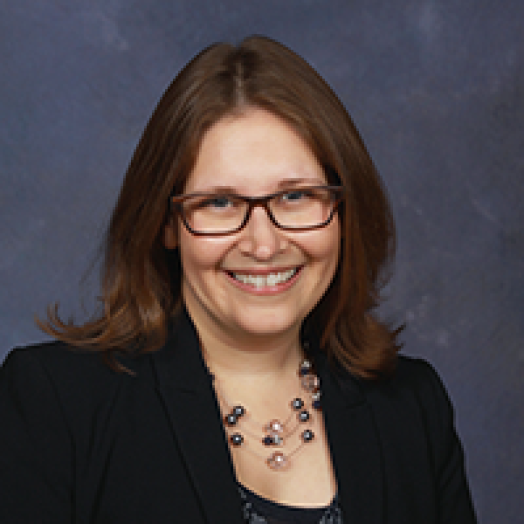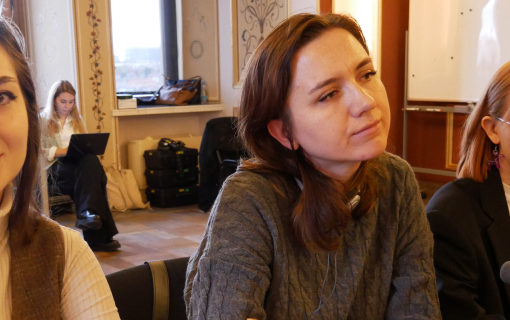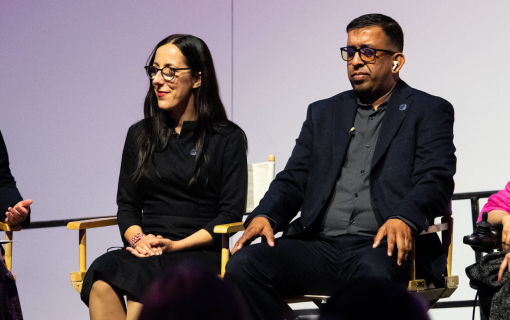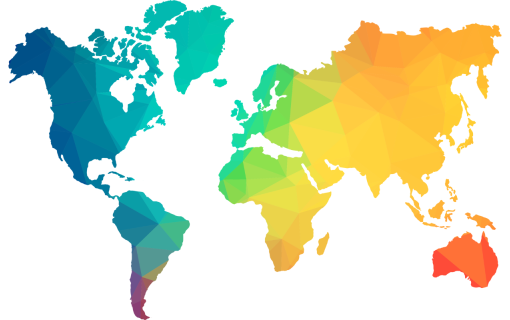
Highlighting Leadership for Inclusive Political Participation at the United Nations Headquarters
On June 11, the International Foundation for Electoral Systems (IFES) co-hosted a side event at the Conference of States Parties (COSP) to the United Nations (UN) Convention on the Rights of Persons with Disabilities (CRPD). “Leadership for Policy Change: Government, International Nongovernmental Organization and Disabled People’s Organization Strategies for Political Inclusion” was co-hosted by the United States Mission to the UN and moderated by the mission’s Senior Human Rights Adviser Sofija Korac. Other panelists included IFES Inclusion Adviser Virginia Atkinson, European Disability Forum (EDF) Vice President Patrick Clarke, “She Leads Cambodia” alumna Chanthy Hoy and National Electoral Institute of Mexico (INE) Counselor Adriana M. Favela Herrera.
“Participation of persons with disabilities in society can’t be effective without properly including them in political life.” – Patrick Clarke, European Disability Forum and Down Syndrome Ireland
Panelists described leadership of persons with disabilities as observers, voters, disability rights champions and candidates. Korac noted that the United States integrated disability rights throughout its biennial resolution to the UN on elections, which will be submitted this fall. Atkinson highlighted IFES’ Election Access Observation Toolkit and methodology, which empower persons with disabilities to serve in political leadership roles and collect data on inclusion in the political process. Clarke noted that 800,000 persons with disabilities in Europe remain excluded from voting in elections, so EDF created an online petition to call for election access, which was signed by several candidates for the European parliamentary elections. Hoy reflected on her experience in IFES’ “She Leads” program, which developed her skills to solve community problems and express her opinions. In Mexico, Favela Herrera described INE’s recent efforts to develop a protocol, with the support of civil society partners, to strengthen political inclusion of persons with disabilities. The guidance resulted in the participation of 776 persons with disabilities as election officials in 2018. To enhance access of voters with disabilities, 157,000 polling stations adapted voting screens and provided accessible materials in Mexico’s 2018 elections. The protocol also promoted access to public office for candidates with disabilities; 61 candidates with disabilities ran for office, and 19 were elected.
The panel also included a discussion on working with civil society and enfranchising persons with intellectual or psychosocial disabilities. Korac highlighted the importance of partnerships: “Civil society colleagues are really our partners, and we look to them. Even on ways we are doing a good job, we are always looking to improve.” In response to a question from the audience on the role of election commissions in reforming legal frameworks that exclude persons with intellectual or psychosocial disabilities, Atkinson noted that policy reform is often possible without changing the law. Clarke added that election commissions can comment and advise on laws that may affect voting rights, as well as ensure legal barriers are noted in CRPD reports.
“The vote is universal, so ultimately [everyone] should have the access to vote and be elected.” – Counselor Adriana M. Favela Herrera, National Electoral Institute of Mexico
On June 12, IFES co-sponsored an event organized by UN Women, “High-Level Meeting of Women with Disabilities in Political and Public Leadership: Toward Beijing+25,” which resulted in the signing of a declaration by more than 20 women with disabilities, including former Special Advisor for International Disability Rights at the United States Department of State Judith Heumann, Federal Senator of Brazil and CRPD Committee member Mara Cristina Gabrilli, Member of Parliament of the Republic of Serbia Lyupka Mihojovska and Member for Intellectual Disability at the City Council of Barcelona Montserrat Vilarrasa. The event was opened by UN General Assembly President María Fernanda Espinosa Garcés.
Learn more about Hoy’s presentation and experience at COSP.
Read about the COSP side event on intersectionality organized by IFES in 2018.










